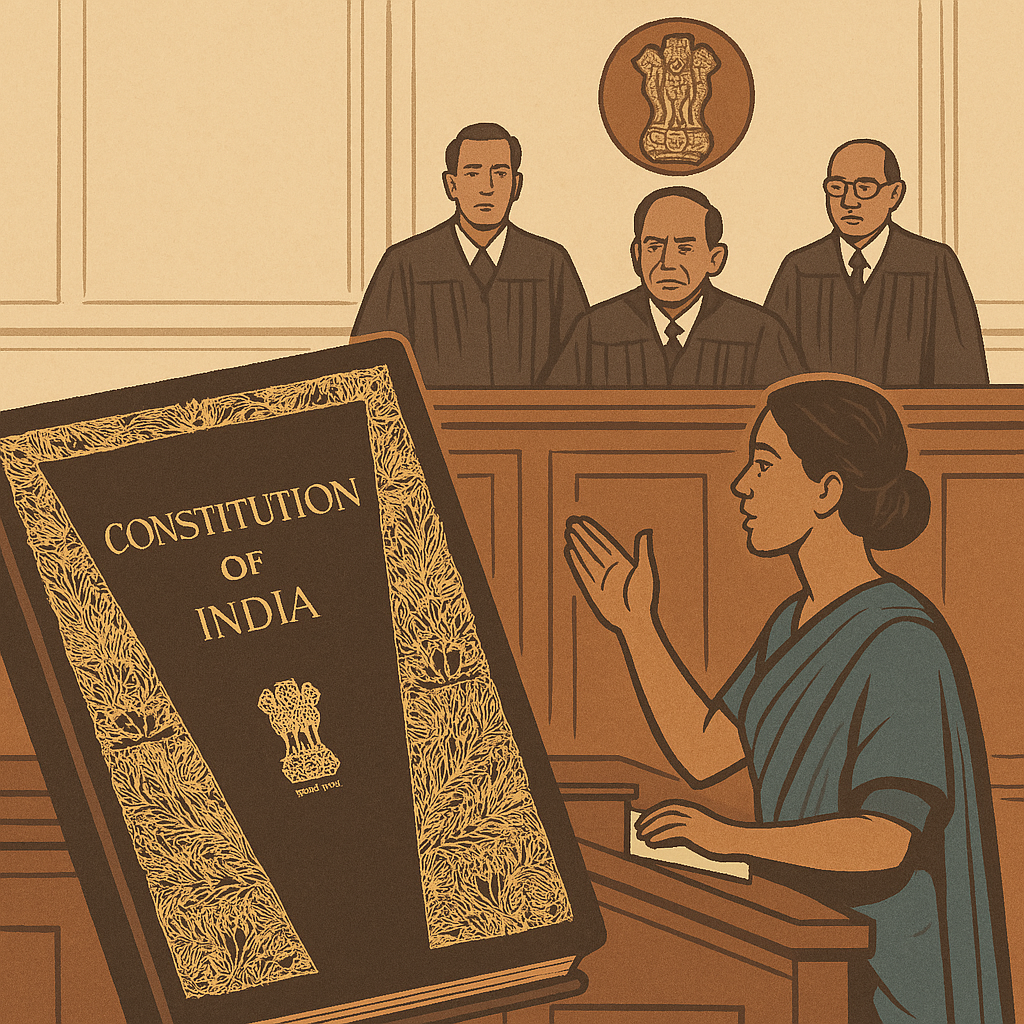The Right to Privacy was declared a fundamental right under Article 21 by the Supreme Court in Justice K.S. Puttaswamy v. Union of India (2017), marking a turning point in protecting individual dignity, autonomy, and freedom in the digital age.
📚 Introduction
For decades, India did not explicitly recognize a right to privacy. That changed dramatically in 2017, when a nine-judge bench of the Supreme Court unanimously ruled that privacy is a fundamental right.
In a world of surveillance, data leaks, facial recognition, and social media tracking, this judgment came as a constitutional shield for every Indian citizen.
🧾 Constitutional Basis
The Right to Privacy is not specifically mentioned in the Constitution. But the Supreme Court held that it is implicit in:
-
Article 21 – Right to life and personal liberty
-
Article 19 – Freedom of expression and movement
-
Article 14 – Right to equality and dignity
Privacy is essential for exercising these rights meaningfully. Whether it’s about how we live, who we love, what we browse, or how we vote—privacy protects it all.
⚖️ Landmark Case: Justice K.S. Puttaswamy v. Union of India (2017)
-
Retired judge K.S. Puttaswamy challenged the mandatory Aadhaar linkage, arguing it violated privacy.
-
The government claimed privacy wasn’t a fundamental right, relying on outdated cases like M.P. Sharma (1954) and Kharak Singh (1962).
✅ The Court overruled both and declared:
“Privacy is intrinsic to life and liberty under Article 21.”
The judgment emphasized:
-
Dignity
-
Autonomy
-
Freedom of thought
-
Bodily integrity
-
Informational privacy
📘 Related and Follow-Up Cases
-
Aadhaar Case (2018)
-
SC upheld Aadhaar for welfare but struck down mandatory linkage with bank accounts, SIM cards, and private services.
-
-
Navtej Singh Johar v. Union of India (2018)
-
Decriminalized homosexuality, citing privacy and dignity.
-
-
Joseph Shine v. Union of India (2018)
-
Struck down adultery law as it intruded on personal autonomy.
-
📲 What Does the Right to Privacy Include?
-
Personal data protection
-
Digital privacy (internet activity, messages, emails)
-
Home and family life
-
Medical and reproductive privacy
-
Sexual orientation and gender identity
-
Freedom from surveillance and profiling
🔍 Real-World Implications
-
Data Protection Laws
-
Led to the drafting of India’s Digital Personal Data Protection Act (2023).
-
-
Consent-based data use
-
Companies must inform users how their data is collected and used.
-
-
Social media and tech regulation
-
Platforms are under scrutiny for privacy breaches and algorithmic control.
-
-
Surveillance concerns
-
Tools like Pegasus spyware raised questions on state overreach.
-
⚖️ Privacy Is Not Absolute
The Court held that privacy is not an unlimited right. The government can restrict it if:
✅ There is a legitimate state interest
✅ The action is proportionate and necessary
✅ The least restrictive alternative is used
✅ There is a legal framework
This keeps a balance between individual rights and national interest.
🧠 Why It Matters
-
Protects citizens from state surveillance and corporate exploitation
-
Upholds human dignity and personal space
-
Essential in an era of AI, biometric tracking, and digital governance
🧩 Conclusion
The recognition of the Right to Privacy as a fundamental right was a historic moment that reshaped Indian democracy for the digital age. It ensures that citizens remain in control of their lives, bodies, and data—and that no government or corporation can trespass without reason.
In today’s world, privacy is not a luxury—it is a constitutional necessity.

